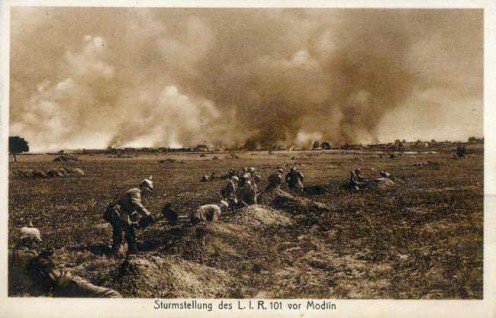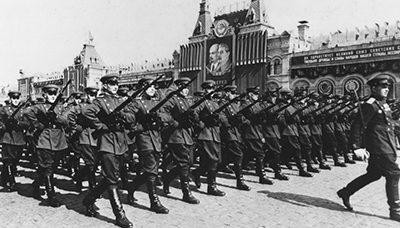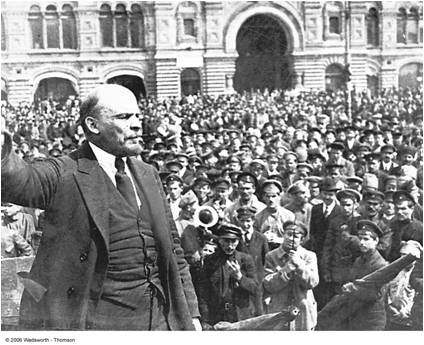Fighting Resumes for Ukraine,
Russia Losing All Its Territory.
Special to The Great War Project.
(28 January) Russia may have pulled out of the war on the Eastern Front, but that hasn’t stopped the fighting there.
Russia under Lenin believes Ukraine is part of Russia, and they are willing to fight for it.
In January a century ago, Lenin’s forces, according to historian Martin Gilbert, “enter the Ukraine and declare the triumph of Bolshevism there.”

German troops fight on the Eastern Front
Fighting breaks out between Russian forces and Ukrainian nationalists at Lutsk in northwestern Ukraine “where three years earlier German and Russian forces, according to Gilbert, “had battled for supremacy.”
On January 29 Lenin’s forces enter Kiev and Odessa, both in Ukrainian territory.
“Two days later,” Gilbert writes…
“with Ukraine falling rapidly under Bolshevik rule, Lenin established the Union of Soviet Socialist republics – the USSR, also known as the Soviet Union.”
“This was followed within two weeks by the creation first of the of the Red Navy and then the Red Army.”
Soon after that, Lenin and Trotsky realize that they must quickly lead Russia formally out of the war if the government they are establishing will retain any territory at all.

Russian troops on the march.
There have been long drawn out negotiations between the Germans and Bolshevik forces at Brest-Litovsk on the Russian border with Poland. But in early February a century ago, the talks break down, because the Germans are pressing the Russians under Lenin and Trotsky to accept terms – the loss of territory – that they simply cannot accept.
The Germans are planning to resume the war against Russia, and Lenin and Trotsky realize it. “Tomorrow,” the German commander General Max Hoffman writes “we are going to start hostilities against the Bolsheviks. No other way out is possible. Otherwise these brutes will wipe up the Ukrainians, the Finns, and the Balts, and then quickly get together a new revolutionary army and turn the whole of Europe into a pig-sty.”
And so the war with Russia resumes. Lenin quickly understands the Bolsheviks cannot win.
Russia cannot sustain a resumption of the war. Lenin and Trotsky inform General Hoffman they will sign any terms the Germans demand.
“Delay is impossible,” Lenin writes, “We must sign at once.”

Lenin addresses the crowd, declares the Soviet Union.
But now the Germans are in no mood to accept the Russian surrender. They see the terrible state of the Russian army. German troops enter Minsk on Russia’s western border, and the German general declares, “The Russian army is more rotten than I had supposed.
There is no fight left in them. Yesterday one lieutenant with six men took six hundred Cossacks prisoner.”
The Germans seize the roads and railways. In four days they advance 150 miles. Writes the German general: “This is the most comical war I have ever known. We put a handful of infantrymen with machine guns and one gun on a train and push them off to the next station. They take it, make prisoners of the Bolsheviks, pick up a few more troops, and go on. This proceeding has at any rate the charm of novelty.”
Reports historian Gilbert: “The Germans knew that the territorial integrity of Russia was disintegrating even faster than could have been anticipated.”
